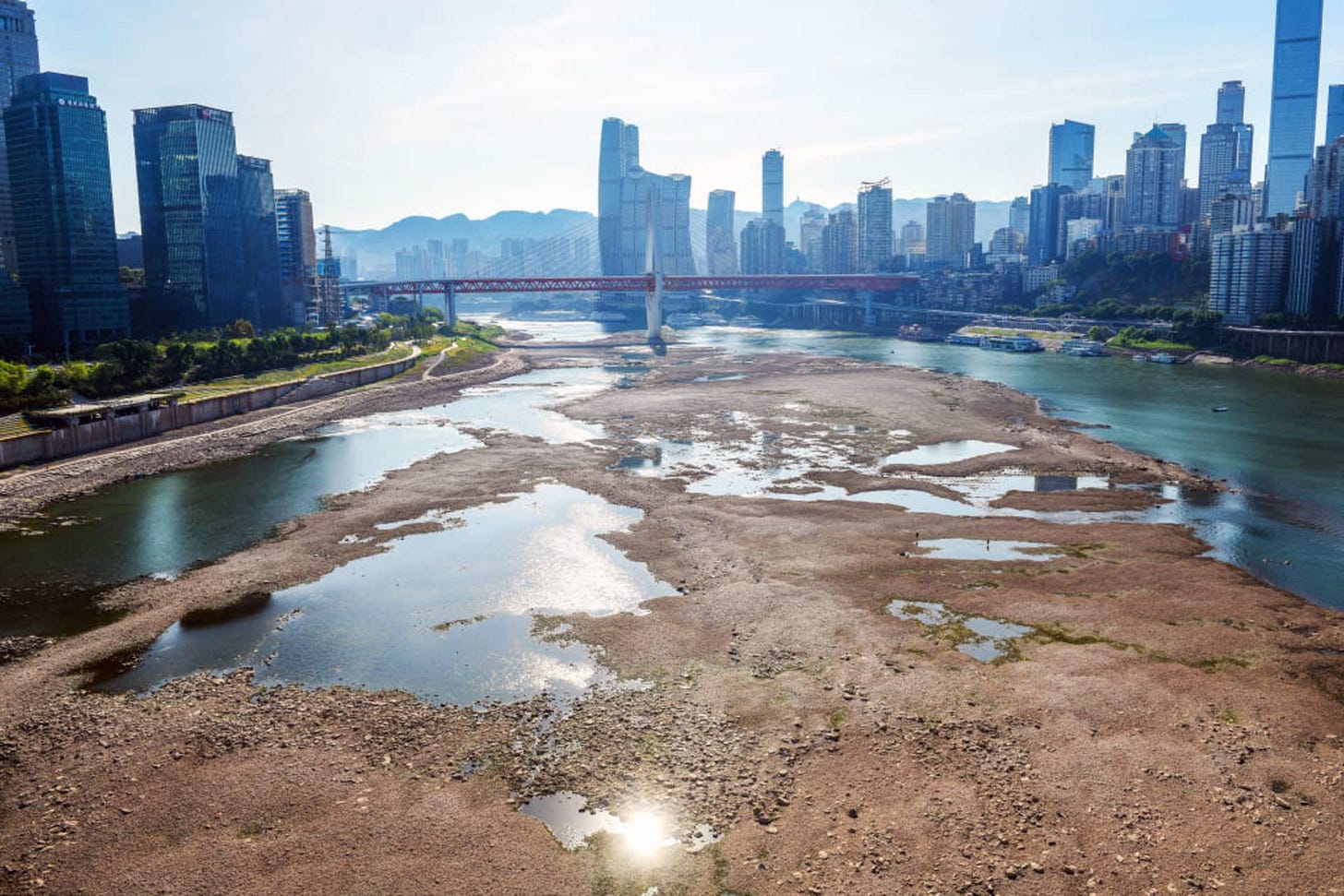Climate Change Is Not Sparing China, Whose Growth Is Facing a New Threat: An Unprecedented Drought.
Xi Jinping's blue sky battle is forgotten, and coal production is revived.
Climate change does not spare China.
In recent weeks, Xi Jinping's country has experienced deadly floods in the northwest of the country, which is usually relatively arid, an exceptional drought along the Yangtze River, which is typically fiery, and temperatures often exceeding 40 degrees, recorded in a third of the country's weather stations.
By the midd…
Keep reading with a 7-day free trial
Subscribe to Sylvain Saurel’s Newsletter to keep reading this post and get 7 days of free access to the full post archives.




